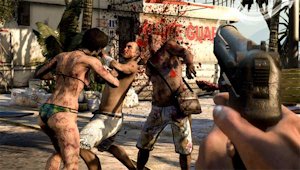Gamers Should Never Forget Justice Scalia
 | | He was a surprisingly cheery fellow |
On Saturday, Supreme Court Justice Antonin Scalia was found dead. Regardless of what you may think of his political leanings or opinions, the loss of any Justice should be a time for mourning and reflection, not scorn or celebration. I promise, therefore, not to get too political in this article, especially since I reserve my politics for other venues. Instead, I'd like to remember what Scalia did for video games, as an art form.
Six years ago, Justice Scalia wrote and delivered the majority opinion of the Supreme Court in the case of Brown v. Entertainment Merchants Association. At issue was AB 1179, a 2005 California law that forbid certain games--those deemed violent, excessive, and/or without educational, artistic, political, or scientific value--from being sold or rented to anyone under the age of eighteen, in addition to requiring an official state label.
This was a perhaps predictable climax to the growing cultural paranoia surrounding violent video games in the wake of events like the Columbine shooting. Politicans of every stripe and from both major parties (including Hillary Clinton, Cliff Stearns, Lee Terry, Jim Matheson, and Joe Lieberman) were denouncing violent video games and doing their best to regulate them, often in the misguided belief that this would somehow curb school violence. To this day, there are still plenty of politicians eager to pass laws that blame video games for gun violence, though the volume has been going steadily down on such attempts ever since Scalia's decision.
 | | Forget video games; this man is an obscenity who needs to be regulated |
In Brown, the Supreme Court was tasked with considering whether there could be an exception to the First Amendment that applies solely to speech directed at children, much as there is for obscenity. The California law wasn't limited solely to obscenity, however, as "obscenity" is very clearly defined by the law and the courts as being requisitely sexual in nature, and thus the exception would need to be expanded to include violent material and material deemed by the State as having no inherent value to children. In Scalia's own words, "No doubt a State possesses legitimate power to protect children from harm, but that does not include a free-floating power to restrict the ideas to which children may be exposed."
If you'll forgive the slippery slope speculation, had California prevailed in Brown, the ramifications would have been devastating to the gaming industry and gaming culture in general. Other states had similar legislation lined up, waiting to see how the Supreme Court ruled, and it probably wouldn't have been long before federal legislation was pushed through. The industry would then have faced serious government restrictions in multiple markets as it applied to hardcore games, at a time when casual gaming was still going strong. In other words, if the government could treat video games as it does pornography, games today would be less Fallout 4 and more Plants Vs Zombies Garden Warfare 2. Games companies would be less lucrative, less able to innovate, and less willing to invest in daring ideas. Even if you like casual games and dislike violent ones, you have to shudder at the thought of less diversity, innovation, and freedom.
 | | Oh, the humanity! |
This is the gaming dystopia Scalia saved us from. He didn't do it alone, of course, and if he had not sided with the majority, the California law would still have fallen 6-3. But Scalia's decisions are firm in ways the other justices' are not, and Brown is no exception:
Because the Act imposes a restriction on the content of protected speech, it is invalid unless California can demonstrate that it passes strict scrutiny—that is, unless it is justified by a compelling government interest and is narrowly drawn to serve that interest. The State must specifically identify an “actual problem” in need of solving, and the curtailment of free speech must be actually necessary to the solution...California cannot meet that standard.
In other words, Scalia is arguing that any restriction of speech must be the last, necessary resort to solving a clearly identified problem. The connection between violent video games and violent behavior in children is a contentious one (to put it mildly), but even if one assumes that there is a measurable, causative correlation, it isn't a valid reason to censor video games, unless there are absolutely no other measures that could be taken to curb that violent behavior and that this violent behavior is such a critical problem that it is in the State's interest to take drastic action. It is virtually impossible for anything to rise to Scalia's standard, which is how it should be. If we're going to restrict free speech, we'd better be absolutely certain it is necessary and proper to do so.
 | | Art! |
And that brings me to the other important thing Scalia's decision has done for video games: he made it abundantly clear that video games are a protected form of free speech and a legitimate mode of human expression. You could even say he put a definitive, legal end to the "are video games art" debate. They are art, and anyone who argues otherwise has to now contradict U.S. Supreme Court precedent. Again returning to Scalia's own words:
Like the protected books, plays, and movies that preceded them, video games communicate ideas—and even social messages—through many familiar literary devices (such as characters, dialogue, plot, and music) and through features distinctive to the medium (such as the player’s interaction with the virtual world). That suffices to confer First Amendment protection. Under our Constitution, “esthetic and moral judgments about art and literature...are for the individual to make, not for the Government to decree, even with the mandate or approval of a majority.”
So he saved the gaming industry from detrimental government regulations, strong legal restrictions, and immense political scrutiny. He made it clear that a game cannot be censored simply for being violent, and he argued vehemently that any attempt to do so would need to pass an incredibly high bar. And, finally, he cemented gaming's reputation as a legitimate art form. For all of these reasons, we as gamers owe an enormous debt to Justice Antonin Scalia, and we should mourn his passing.
-e. magill 2/17/2016
|
|